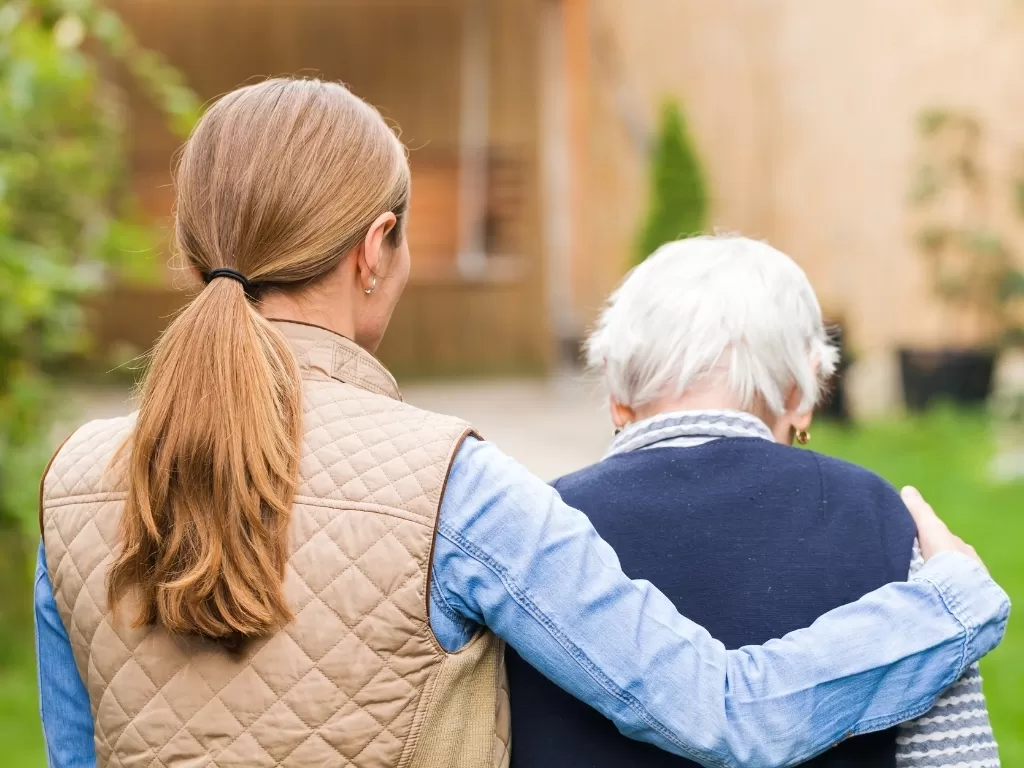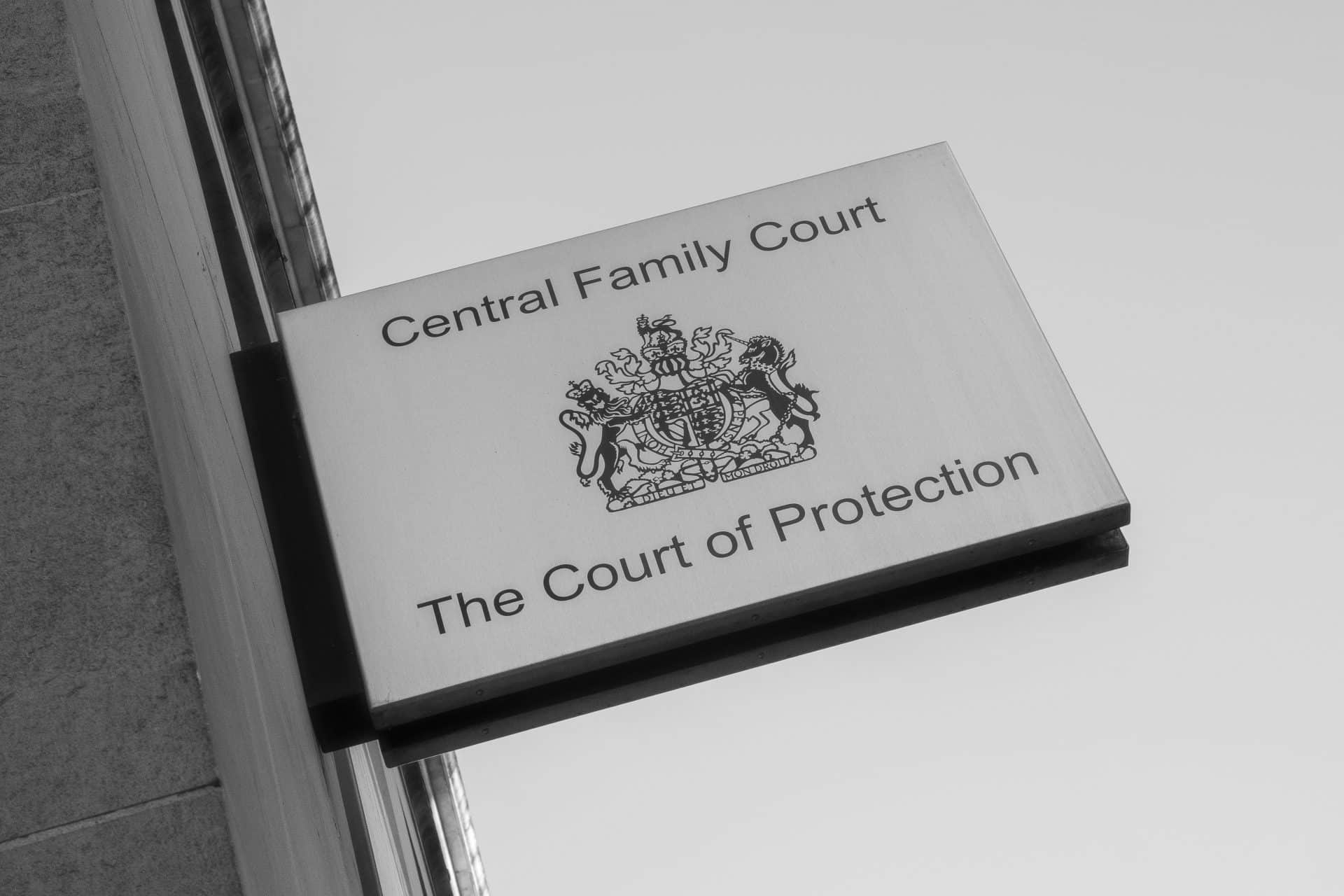OPG start podcast channel: ‘updating how we communicate’
The major success of the Mental Capacity Act has to be the uptake in people making Lasting Powers of Attorney. This has meant an increased understanding amongst the general population of the work undertaken by the Office of the Public Guardian.
A lot of work has been undertaken to promote the work of the OPG, with various projects and schemes that have been run in conjunction with other agencies. Whilst this is welcomed, the way that the OPG engages with ordinary citizens can be open to criticism.
One result of how they have actively tried to listen is via their stakeholder survey. Published in June 2020 it established the need for simpler guidance to be made available to the general public. The OPG took up the challenge and launched a series of podcasts, available online, featuring topics that are commonly requested. So far there are only five episodes available, but they make it clear there will be more subjects covered.
Subjects currently covered include top tips for LPA’s and giving gifts as an attorney or deputy. Given the calls we receive via PADSN for advice it would great to see much more content added, including advice on DOLS, how to replace a deputy if they aren’t acting in my best interests and help for completing annual forms.
There is still a great deal of work to do, however many will be unable to engage with podcasts. Not everyone has a computer for example. Saying that, it is very welcome to see the OPG expand the way they engage with the public and deputies at large.
You can listen to the podcast on all the major channels by searching for the ‘Office of the Public Guardian’ or follow the link here.
The PADSN is an organisation which has been specifically created to help provide key assistance to public authority deputies across the UK. If you would like to learn more about THE PADSN, watch past events or require assistance, you can further explore our website here. Alternatively, you can telephone: +44(0) 20 7490 4935 or email: [email protected].
Court orders 80-year-old Care home resident to receive COVID vaccine despite son’s objections
Since the beginning after 90-year-old grandmother, Margaret Keenan was the first to receive the Pfizer COVID-19 jab in the UK, there have been numerous conditions requiring attention within the mass vaccination programme. This is seen most recently in the first reported Court of Protection judgment made on capacity in relation to the COVID-19 vaccine.
Last month saw the decision on a 80-year-old care home resident, an individual included within phase 1 of the COVID vaccinations known only as Mrs E in court papers, and whether she should receive the coronavirus vaccine despite her sons concerns of the integrity in the vaccine.
Mrs E has dementia and was diagnosed with schizophrenia some 20 years ago and has been living within a London based care home since March 2020 – a home where a number of confirmed COVID cases were reported following the son’s concerns. Also given her lack of capacity to understand the nature and severity if she was to catch the virus. Such factors including numerous other mentioned within the decision compounds her vulnerability to become infected with Covid-19.
The judge further noted, as required by section 4(6) of the MCA in determining the best interest, to note Mrs E’s past vaccinations, aligning with the beliefs and values sought then to inform the decision of her present need to vaccinate. Prior to her dementia diagnosis, it was found that Mrs E willingly received the influenza vaccine and a vaccination during the 2009 Swine flu pandemic.
The son, noted as Mr W in court papers, further queried whether Mrs E’s wishes and feelings had been canvassed. The son does not have power of attorney for health and welfare, yet his objection the day before the scheduled vaccination, lead to the plan being halted.
Mrs E's representatives urgently sought a declaration, pursuant to section 15 of the Mental Capacity Act 2005 ('MCA 2005') to the effect that it would be lawful and in Mrs E's best interests to receive the vaccine when next availably possible.
On 8 January 2021, Hammersmith and Fulham council informed the woman’s accredited legal representative (ALR) that she was to be offered the Covid-19 vaccination on 11 January 2021.
In the first reported Court of Protection judgment on capacity and best interests in relation to the Covid-19 vaccine, The Vice president of the Court of Protection and ruling judge, the Honourable Mr Justice Hayden said the woman, Mrs E, who lacks capacity to decide whether she should receive the vaccination, should receive the jab “as soon as practically possible”.
To read the full court judgement, please follow the link here.
The PADSN is an organisation which has been specifically created to help provide key assistance to public authority deputies across the UK. If you would like to learn more about THE PADSN, watch past events or require assistance, you can further explore our website here. Alternatively, you can telephone: +44(0) 20 7490 4935 or email: [email protected].
The year 2020: The Leap Year not short of drama and perseverance
When asked to sum up 2020 in one word, what would you use?
‘Pandemic’ would spring to mind immediately followed by ‘lockdown’ or ‘bubble’. I’d guess that you would expect many to use negative words to sum up their experiences of the year that has passed, rightly so as I’d guess no one has been left untouched by the virus in some form or another.
My choice is not a negative one, it is a defiant word. One that sums up how we have had to roll up our sleeves and change, one that defines our spirit, and one that defines how we have coped with the strains of Covid; it is ‘resilience’.
The definition, according to the Oxford English Dictionary is ‘[they] showed great courage and resilience in fighting back from a losing position to win the game’.
Whilst we know that this has not been a game, for local authorities the pandemic would have been prepared for. Emergency plans were rolled out and staff threw themselves into action. Overnight staff had to be dispersed from working in large offices to working from their homes. The challenges for IT teams will have been tremendous and the strain on already overstretched resources would have led to many sleepless nights for staff struggling to ensure services continued whilst keeping staff safe.
Similarly, for Finders International, we changed from an office-based service to one that could be run remotely overnight. Logistically, it was easier for a company the size of Finders to diverge operations given the smaller scale of staff - saying that, it was no mean feat to have to undertake.
The online resources we use to trace people remained available however the physical resources closed, which presented a few issues although nothing we couldn’t cope with.
For me it’s meant a change in the way I work. Over the past two and a half years prior to lockdown I’d had the privilege of meeting many of you in person, either in your offices or at one of the many events we’ve successfully run across the country. I’ve been lucky to have seen more of Britain than most from the comfort of a rail seat, travelling all directions.
Back in late February it was starting to look like things would need to change and quickly. We had planned our first physical conference of the year in Manchester. The venue and speakers were all booked, invitations to the event had been sent. We were ready to go. More or less overnight we had to postpone and take the conference online. Thanks to the fantastic work of our team we managed to pull a package together and our first online Deputyship Development Day went live in March. Subsequently we have produced three more online events aimed at local authority deputyship teams. On top of this we have had separate events for Public Health Funerals, private client solicitors, hospitals and coroners, all producing excellent feedback from our viewers and further transpiring into donations towards charities working hard to support those who require it most across UK.
Whilst we have no idea when or if things will ever return to normal, we have still been able to support teams, provide quality material and engage via video conferencing. In the face of adversity, I think we have all shown great resilience.
Have a peaceful and relaxing festive season, but of overwhelmingly more importance, keep well and keep safe.
We look forward to seeing you in 2021.
David Lockwood – Finders International
The PADSN is an organisation which has been specifically created to help provide key assistance to public authority deputies across the UK. If you would like to learn more about THE PADSN, watch past events or require assistance, you can further explore our website here. Alternatively, you can telephone: +44(0) 20 7490 4935 or email: [email protected].
BBC Kent Radio talks to our Dementia Champion
BBC Radio Kent invite Finders International’s, David Lockwood, to talk all things Dementia. As well as being Finders’ Public sector business development Manager, David is also a Dementia Friends Champion and regularly provides training to staff, clients and friends.
Set up by Alzheimer’s Society, Dementia Friends was formed to help people better understand the disease and assist in making communities better places to live for those dealing with dementia.
David’s role as Dementia Friends Champion is to encourage others to make a positive difference to people living with dementia in their community. David holds regular information sessions which will equip you with vital information about the personal impact of dementia, and everything you can do to help. To book in a session with David (45 min presentation) simply contact us via [email protected] . For more information you can also visit https://www.dementiafriends.org.uk/WEBArticle?page=become-dementia-friend.
BBC radio Kent’s morning show
BBC radio Kent’s morning show hosted by Jules Serkin is joined by David Lockwood, the Public Sector Business Development Manager for Finders International.
David talks about his past role as a Deputy, a role which involves dealing with the finances of individuals who no longer have the capacity to do so, and how these skills translate over to the work of Finders International.
New Rulings by the Court of protection
Two significant rulings have recently come from the Court of Protection (COP) which could have a substantial effect on local authorities and the way they manage deputyships.
In the first case Cumbria County Council v A [2020] EWCOP 38 - https://www.bailii.org/ew/cases/EWCOP/2020/38.html
Hayden J has ruled on a case where a local authority wishes to remove themselves as deputy in favour of a professional deputy. Given current financial constraints and a reduction in funding, local authorities are having to make decisions about the viability of their acting in cases.
The judge made it clear that when a local authority wishes to discharge itself from a role, the court would not automatically authorise the removal of the deputyship. There was also a suggestion that the approach taken by the local authority in identifying individuals it no longer wished to represent did not comply with s.149 of the Equality Act 2010. However, Hayden made it clear that the COP could not undertake such a review of this proposition.
The final paragraph of the judgement states:
“When the court comes to consider an application by a deputy to be discharged from the role it will, as I have analysed above, arrive at its decision by focusing on the impact on P of either granting or refusing the application. When approaching its task, the court will consider whether the application is consistent with the objectives of the MCA i.e. whether or not the application is motivated to promote P's best interests in accordance with the principles that I have identified.
If the application appears to be driven by arbitrary or discriminatory criteria devised, for example to save costs, then the court (if it identifies them) will take them in to account to whatever degree is appropriate when coming to its decision. This will not be in consequence of a public law style review of compliance with Equality legislation, but rather the application of the principles of the MCA.
The issue here is not one of jurisdiction (see N v A CCG [2017] UKSC 22), but of how the application should be approached within the framework of the Mental Capacity Act 2005. It is unnecessary to say more on the point.”
Many local authorities will be considering their position on matters such as this, are they best suited to manage P’s property and affairs or would it be better suited for a professional deputy to be appointed in their place?
When I was deputy for a local authority, my team had limited resources and it was not always in the client’s best interests to have their affairs dealt with by my team. For instance, if they had a property, significant investments or assets more than the FSCS compensation level I would not seek to become deputy, instead I would seek to place the work with a trusted local solicitor.
This leads on to the second order from the court that has significant implications for local authorities, Re OT [2020] EWCOP 25 -https://www.bailii.org/ew/cases/EWCOP/2020/25.html
An application to manage the affairs of an 81-year-old woman was made by two proposed deputies. One was from a trust corporation, KKL, representing a charity who had worked with OT when she had capacity and had written and rewritten her Will. The other, Lynsey Harrison of Clarion, from a list of solicitors kept by Leeds City Council and approached by a social worker.
Leeds City Council operate a system whereby they use a pool of local solicitors. The trust corporation objected to the other solicitor being approached and acting, one of their arguments being:
That the arrangement under which Leeds City Council refers vulnerable people to a small pool of approved solicitors is somehow “cosy” or improper.
DJ Geddes observed:
“There is nothing wrong with such a system in my judgment and no evidence to substantiate the hint that it is somehow against OT’s interests.”
They also argued:
“That it is somehow surprising that Ms Harrison is not being funded by Leeds City Council to make this application or to oppose the application of KKL.”
DJ Geddes stated:
“It certainly does not raise “serious questions” as asserted by Mr A in his skeleton argument. The role of Leeds Social Care was limited to making the referral through Lawdesk. They are not the client of Ms Harrison, nor is OT.
“There is a risk to Clarion Solicitors of taking such referrals in that if their application were rejected they might be left to bear their own costs of bringing the application which they do so purportedly in OT’s interests.
“Of course, in this limited sense they have an interest in either the success of the application or at least in not being criticised for bringing the application to the point of disapplication of the general rule about costs contained in rule 19.2 of the Court of Protection Rules 2017 namely that “Where the proceedings concern P’s property and affairs the general rule is that the costs of the proceedings... shall be paid by P or charged to P’s estate.”
Many local authorities choose to use a small panel of solicitors to undertake work on behalf of vulnerable clients as they are unable or unwilling to do so themselves. It is evident that local authorities have significantly reduced resources because of Covid and being able to fall upon a local list seems sensible and a wise precaution to have in place. This judgement seems, in my opinion to clarify that local authorities can maintain a list/pool of firms to use.
I am pleased to say that we will be discussing these decisions in our next deputyship event, a live webinar to be held on Wednesday 9th September. We will announce our panel during August, but the discussion will centre on these two extremely significant rulings from the Court of Protection.
You will be able to put questions directly to the panel of experts prior to the event and during the event. This free event will be held in place of our National Development Day which was due to be held in London on the 10th September.
PADSN is a free resource to deputyship and appointeeship teams. We provide free training days and advice where possible. You can contact us via email: [email protected] or by telephone: +44(0) 20 7490 4935
How Long Does It Take The OPG To Register LPAs
How long does it take the Office of the Public Guardian (OPG) to register Lasting Power of Attorney (LPA)? Today’s Wills and Probate reported that professionals had resorted to social media, lambasting the OPG for the length of time it takes.
While the issue has been ongoing for some time, it appears that the current coronavirus pandemic has exacerbated the situation.
Today’s Will and Probate reports that the Secretary of State for Justice, The Right Hon Robert Buckland QC, was asked two weeks into the lockdown what assessment he had made of the length of time taken to process an application and what steps his department were taking to ensure there were additional resources to process those applications during the outbreak.
45 day turn around
The department supplied an answer on 12 May, which was later updated to say that the time to process applications for LPAs had increased to 45 days, thanks to the pandemic. The OPG’s target to turn around LPAs is 40 days, but many professionals reported that they do not find this to be the case, and have queried the 45-day answer as some of them have been waiting since the end of the January for the information they need.
The answer from the department read:
“The Office of the Public Guardian (OPG) aims to register Lasting Powers of Attorney (LPAs) in 40 working days (this includes a statutory 4-week waiting period). OPG has seen an impact on the time taken to process an LPA since COVID-19 began affecting circumstances. As of 07/05/2020 the average time taken to process and dispatch an LPA was 45 days against the target of 40 days. As a comparison, the March average came in at 34 days, and the average of 40 days was achieved in 2019/20.
Social distancing affecting the process
“LPAs are paper documents that require a physical staff presence in an office to process and register, therefore these elements of the registration process have been affected by the need to maintain social distancing measures. Additionally, the staff numbers that are available to attend the office to carry out the physical activities are significantly reduced due to COVID-19 reasons (including shielding themselves and others).”
However, the OPG has said it is taking steps to address the issue. The measures it has put in place include providing overtime to staff who can come into the office and work through the backlog. Customers can now also pay for LPAs over the phone, and the OPG has been communicating with customers digitally, through email and phone. The Office has found a new offsite print and post solution so that staff do need to be in the office to post letters to customers.
Finders International runs regular events for public sector employees and others who work as deputies and seek LPAs for the clients in their care. You can read about the events further here.
The PADSN is an organisation which has been specifically created to help provide key assistance to public authority deputies across the UK. If you would like to learn more about THE PADSN or require assistance, you can visit our website here. Alternatively, you can telephone: +44(0) 20 7490 4935 or email: [email protected].
E-Conference - Universal Credit Document
Following the E-conference panel conversation with Alison Taylor of Frenkel Topping on Universal Credit, we are publishing the latest guidance from the Department for Works and Pensions on the website. Please click on the link to view.
An update from the Court User Group
The Court of Protetion User Group has published further advice for practitioners following the postponement of the group’s meeting on the 28th April.
The document, signed by Judge Hilder and Amrit Panesar (Court Manager), updates on the activities of the Court during the Coronavirus pandemic. Roughly 70-80 % of Court staff are working remotely, whilst there has been a continuous presence at First Avenue House.
Hearings are continuing during the pandemic and are being conducted remotely. Guidance has been updated on Hearings (see Guidance note 5). Video hearings have been made available at the discretion of the Judge. HMCTS are looking to fast track the implementation of a new platform for video hearings across the Courts service.
In a welcome change to existing protocol, the Court are now accepting COP20A and COP20B forms electronically. The Court have asked that applicants submit all forms together using the email address - [email protected] ensuring that the client name and court ref is in the subject field.
They stipulate that this is only to be used for COP20 forms and no other forms. However, they follow that news with further information about a pilot exercise allowing Court Users to submit COP forms electronically. Nothing is stated about the length of time this service will be available for.
The initial pilot study is due to finish at the end of July and the Court will assess its effectiveness and report back to the User Group. This is a welcome move to see the Court moving into the 21st Century and embracing technology and will make electronic workflows much more integrated into the process.
The document finishes with details of who to contact at the Court should practitioners have ideas or thoughts on how the Court can assist them. Details for ACO Ross Hamilton have been provided - [email protected]
Covid-19 - Supporting individuals
Supporting individuals needs has never been more paramount than during the ongoing pandemic.
The Office of the Public Guardian have recently updated their blog with guidance for attorneys and deputies during the Covid-19 pandemic with some useful guidance.
Entitled “Acting as an attorney or deputy from a distance” the blog reinforces the responsibilities and how to deal with cases whilst ensuring that you keep socially distant, suggesting that an attorney or deputy consider using all methods such as communicating with the individual via video conferencing tools, referring to past decisions and statements the individual had made, speaking remotely to carers.
The guidance is helpful as many private attorneys and deputies will be finding it hard to carry out their role whilst maintaining strict social distancing. It, of course, remains vitally important that any decisions made by an attorney or deputy are recorded and done so as thoroughly as possible.
The guidance on the OPG Blog, available here, does not make any suggestions about how to control or make payment of monies to an individual. Many Local Authorities have turned to pre-paid cards or have used a voucher system, such as Paypoint to ensure that individuals have access to cash. Other authorities have used online shopping with large supermarket chains to ensure that the individual gets food delivered to their doorstep.
Guidance from the Court of Protection has already been published and updated regularly during the pandemic.
Support for those who are clinically extremely vulnerable is available on the Governments website.









